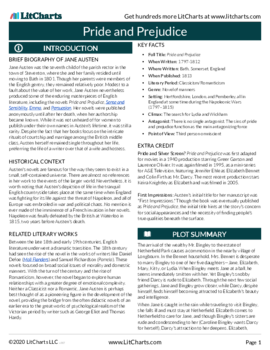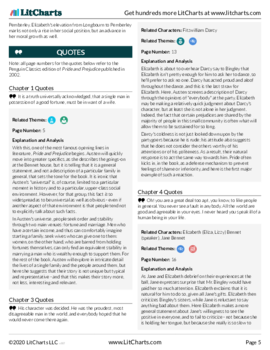- All's Well That Ends Well
- Antony and Cleopatra
- As You Like It
- The Comedy of Errors
- Coriolanus
- Cymbeline
- Hamlet
- Henry IV, Part 1
- Henry IV, Part 2
- Henry V
- Henry VI, Part 1
- Henry VI, Part 2
- Henry VI, Part 3
- Henry VIII
- Julius Caesar
- King John
- King Lear
- Love's Labor's Lost
- A Lover's Complaint
- Macbeth
- Measure for Measure
- The Merchant of Venice
- The Merry Wives of Windsor
- A Midsummer Night's Dream
- Much Ado About Nothing
- Othello
- Pericles
- The Rape of Lucrece
- Richard II
- Richard III
- Romeo and Juliet
- Shakespeare's Sonnets
- The Taming of the Shrew
- The Tempest
- Timon of Athens
- Titus Andronicus
- Troilus and Cressida
- Twelfth Night
- The Two Gentlemen of Verona
- Venus and Adonis
- The Winter's Tale
plus so much more...
-
Lines 1-5
The speaker of the poem is the poet, Gillian Clarke, herself. Clarke opens the poem by addressing her real-life daughter, Catrin, directly (Catrin is "you" throughout the poem) and describing the day she gave birth.
She doesn't come right out and say that she's in labor in these lines, however, and it takes a beat to become clear that this is indeed what's happening. The speaker doesn't say "I can remember giving birth to you." Instead, she says, "I can remember you, child," making it sound like her daughter is already there; she already has a strong presence alongside the speaker in this "hot, white / Room," despite not being born yet. Calling her daughter "child" also establishes the speaker's authority over her daughter (which will make more sense at the poem's end, when readers realize that the speaker is reminiscing about all this after her daughter has asked to stay out later).
This "hot, white / Room" refers to a hospital room—a space with white, sterile walls. This room is hot, perhaps, because the speaker is warm from the effort of labor—or maybe the building's ventilation system isn't up to snuff. Either way, this imagery doesn't make the room seem like a comfortable, welcoming space where one would want to hang out for too long.
Adding to the tension is the fact that the speaker recalls standing, rather than lying in a hospital bed. It sounds like she's still in the relatively early stages of labor at this point, or that her labor has been going on for some time. In any case, she's able to walk around as she waits for the baby's arrival to become more imminent.
She remembers looking out of the room's "window" at the streets below, filled with both people and traffic. Normal life is happening outside of the room, while the speaker remains stuck within, waiting to be transformed by one of the most important events of her life.
The crisp /t/ alliteration and consonance of these opening lines make them sound sharp and spiky: "stood," "hot, white," "watching," "taking / Turns at the traffic lights." All in all, readers get the sense that the speaker was uncomfortable, anxious, and perhaps a bit excited as she waits for her daughter to arrive.
A free verse poem, "Catrin" doesn't follow a rhyme scheme or regular meter. It also features quite a bit of enjambment, as in lines 2-5 here:
As I stood in a hot, white
Room at the window watching
The people and cars taking
Turn at the traffic lights.The poem snakes down the page, evoking the smooth flow of the speaker's thoughts, the fluid bond between mother and child, and the relentless forward pull of time.

|
PDF downloads of all 3054 of our lit guides, poetry guides, Shakescleare translations, and literary terms.
PDF downloads of all 1910 LitCharts literature guides, and of every new one we publish.
Learn more
|

|
Explanations for every quote we cover.
Detailed quotes explanations (and citation info) for every important quote on the site.
Learn more
|

|
Instant PDF downloads of 136 literary devices and terms.
Definitions and examples for 136 literary devices and terms. Instant PDF downloads.
Learn more
|

|
Compare and contrast related themes.
Compare and contrast Related Themes across different books.
Learn more
|

|
Teacher Editions for all 1910 titles we cover.
LitCharts Teacher Editions for every title we cover.
Learn more
|

|
PDFs of modern translations of every Shakespeare play and poem.
PDFs of modern translations of every Shakespeare play and poem.
Learn more
|

|
Advanced search across our collection.
Advanced Search. Find themes, quotes, symbols, and characters across our collection.
Learn more
|

|
Line-by-line explanations, plus analysis of poetic devices for lyric poems we cover.
Line-by-line explanations, plus analysis of poetic devices for every lyric poem we cover.
Learn more
|


For every lyric poem we cover.



Literature Guide PDFs
LitCharts PDFs for every book you'll read this year.



Quotes Explanations
For all 42,228 quotes we cover.





Teacher Editions
Time saved for teachers.
For every book we cover.
Common Core-aligned



PDFs of modern translations of every one of Shakespeare's 37 plays, 154 sonnets, and 3 longer poems.


Plus a quick-reference PDF with concise definitions of all 136 terms in one place.





















